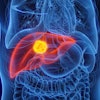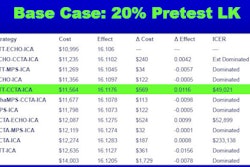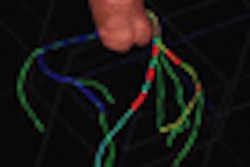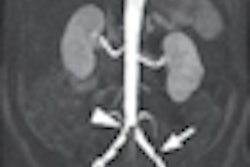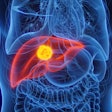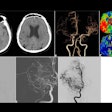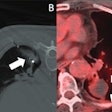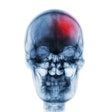Patients diagnosed with small renal masses have a variety of options for treatment, including kidney surgery, high-intensity focused ultrasound, cryoablation, and radiofrequency ablation (RFA). Ablation technologies offer fewer complications and a faster convalescence, but their effectiveness in enabling patients to remain free of cancer has not been as well known as that of surgery.
However, outcomes of patients treated with RFA at the University of Texas Southwestern Medical Center in Dallas over a seven-year period are positive. Patients with pathologically proven renal cell carcinomas have a recurrence-free survival rate of 90% five years after treatment, according to a report published in the July 1 issue of Cancer (2010, Vol. 116:13, pp. 3135-3142).
At the medical center, patients diagnosed with renal masses smaller than 4 cm located more than 0.5 cm from the ureteropelvic junction, renal pelvis, or segmental renal vessels are offered RFA as an alternative to observation or surgical removal. Between May 2001 and December 2008, 208 patients with 243 small renal masses chose to have this treatment.
Tumors located anteriorly or medially in close proximity to the bowel or adjacent organs were managed by laparoscopic RFA, while tumors oriented more posteriorly and laterally were managed by percutaneous RFA, according to lead author Chad Tracy, MD. Patients initially had contrast-enhanced CT or MRI exams six weeks and six months following treatment, and annually thereafter.
Seven renal masses were identified as having an incomplete primary ablation, and these patients underwent a repeat ablation. One of these patients had a local recurrence three years following treatment.
Overall, the initial success rate of RFA treatment for the patient cohort was 97%. Ultimately, nine patients had local recurrences within three years of follow-up. Both three- and five-year recurrence-free rates were 93%, dropping 3% for a 160-patient subgroup who had biopsy-proven renal cell carcinomas. Three patients in this biopsy-positive group developed metastatic disease at a mean follow-up of 27 months.
Patients who were disease-free at three years following RFA treatment have remained so, the authors reported. They are continuing to follow the patient cohort to determine the rate of late recurrences.
Related Reading
Screening VC sorts out incidental kidney lesions, June 15, 2010
Radiofrequency ablation effective for small renal tumors, June 24, 2005
Copyright © 2010 AuntMinnie.com
